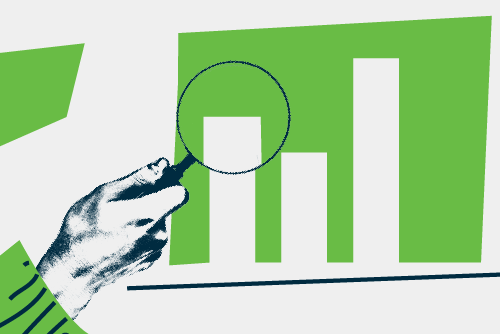Global uncertainty is testing Europe, but in Brussels, thousands of associations quietly provide stability by linking voices, expertise, and solutions.
Europe’s Collective Voice
Individually, European countries may be modest in size — Germany, the largest, ranks only 19th globally by population — but together, the European Union exerts undeniable global influence, particularly in trade, regulation, and standard-setting. Associations reflect this same principle of unity: bringing national bodies together to speak with one stronger, European voice.
Brussels: Capital of Associations
Behind the visible machinery of the EU institutions and high-level negotiations lies a quieter force that shapes policy every day: nearly 3,000 associations headquartered in Brussels.
For over two decades at Euractiv, we have studied how these associations evolve and seek recognition as credible, trusted sources of expertise. In early 2025, we launched a new initiative — Shaping EU Influence: Trends for Associations — to explore how they contribute to policymaking and how their role is shifting in today’s uncertain political landscape.
More Than Lobbyists
At a time when the EU is under pressure to prove its relevance to citizens and deliver decisive responses to economic, geopolitical, and societal challenges, associations play a role that is often overlooked. They are not just interest groups; they are bridges between institutions and society. They channel expertise, ensure representation, and connect abstract policies with the realities on the ground across Europe.
Engines of Competitiveness and Innovation
Associations also help power Europe’s competitiveness. By pooling sectoral know-how, coordinating cross-border cooperation, and spreading innovation, they strengthen Europe’s industrial and economic base. Many go further still, embracing a wider public mission: championing evidence-based regulation, promoting best practices, and advancing EU goals such as climate neutrality, digital sovereignty, and social inclusion.
A Changing Political Landscape
The environment in which associations operate is being reshaped by profound global shifts. Security and defense now dominate the agenda, spurred by the war in Ukraine and the urgent need to reduce Europe’s reliance on external powers for energy, technology, and raw materials.
Economic independence is becoming a strategic priority, with new investments in research, innovation, and infrastructure aimed at making the EU more resilient to global shocks. In the digital realm, Europe is leading the way on regulation, from AI ethics to data privacy, setting standards that resonate far beyond its borders.
Balancing Priorities
Yet there are risks. In the race to bolster security and competitiveness, sustainability could slip down the agenda. Associations have a key role to play in preventing this trade-off, reminding policymakers that green growth and long-term prosperity are inseparable.
At the same time, political currents are shifting. The rise of far-right sentiment and anti-EU narratives threaten to sideline civil society and smaller interest groups. Associations must respond with creativity and openness: building coalitions, promoting dialogue across divides, and keeping the participatory spirit of the EU alive.
The Way Forward
Europe stands at a critical juncture, facing geopolitical rivalries, economic realignments, and societal transformation. In this context, associations are not peripheral players — they are strategic partners.
By fostering collaboration across borders and sectors, they help keep Europe innovative, competitive, and socially cohesive. And by amplifying diverse voices, they strengthen Europe’s democratic legitimacy.
Recognizing the hidden power of associations is essential. If Europe is to remain resilient and relevant on the world stage, these quiet actors in Brussels must be seen not just as lobbyists, but as indispensable builders of the European project.
Euractiv conducted a qualitative, non-statistical survey targeting associations—including industry federations, trade unions, chambers of commerce, NGOs, European platforms, consumer and patient organizations, and liberal professions. Invitations were sent via targeted emails, and responses were collected through an online questionnaire from 6 May to 12 June 2025, with 106 organizations participating. The technical results and interpretation of this data is now published in the study which can be accessed here.
Euractiv provides media tools for associations to monitor sectoral legislative dynamics (Euractiv PRO), but also provides media products for associations to present their vision of the economic impact of the sector they represent (Economic Impact Review). Detailed explanations can be found in the study pages. For tailored solutions contact us at dan.luca@euractiv.com.
Dan Luca, PhD, collaborates with universities in Belgium and Romania, where he teaches courses on EU communications. He has been part of the Euractiv team in Brussels for nearly 25 years and currently serves as Vice-President for Media Business Innovations.
